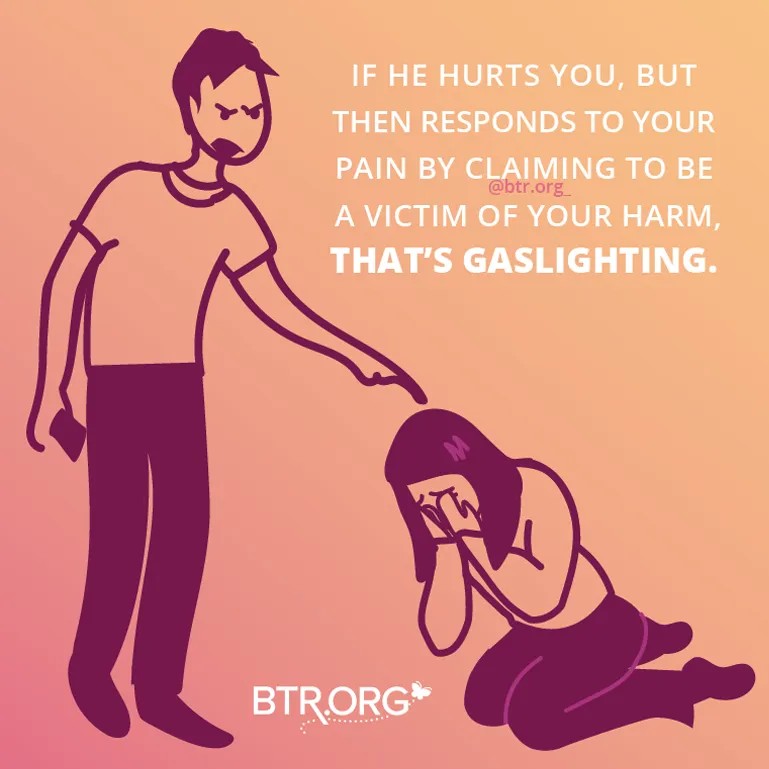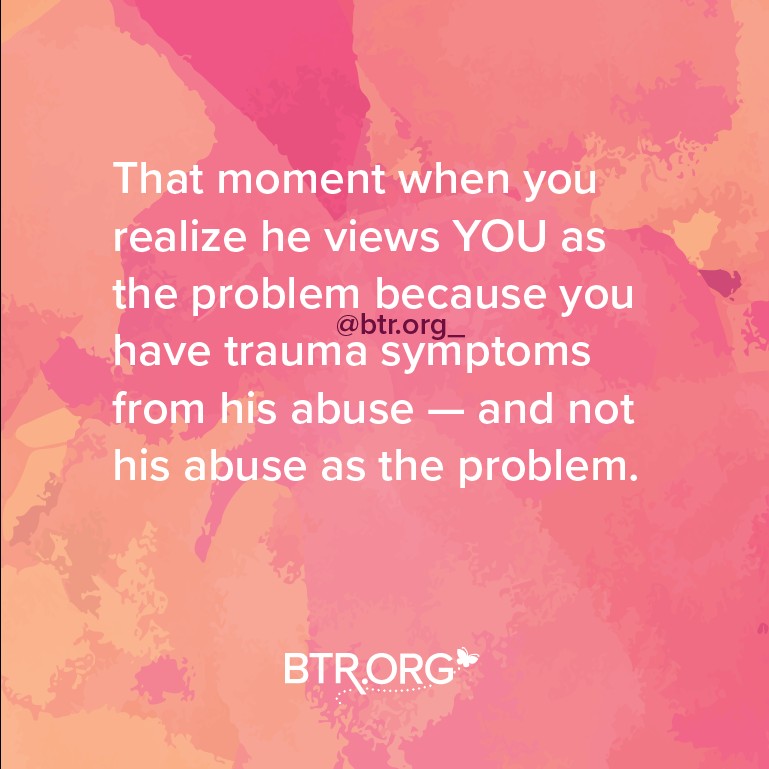Why Is My Husband So Mean To Me? Understanding the root causes of a husband’s mistreatment is crucial for your well-being and the health of your relationship. WHY.EDU.VN delves into this complex issue, offering insights and potential solutions for women seeking clarity and change. Explore avenues for addressing marital issues, including seeking professional help and prioritizing self-care to reclaim your sense of self-worth. Discover resources for emotional support and guidance.
1. Identifying the Problem: Is It Really You?
Many women find themselves in a situation where their husbands constantly criticize, demean, or treat them with disrespect. It’s easy to internalize this negativity and start questioning your own worth. However, it’s crucial to step back and assess the situation objectively. Are you truly the problem, or is there something else going on?
- Self-Reflection: Begin by honestly evaluating your own behavior. Are you contributing to the negativity in the relationship? Are you communicating effectively? Are you meeting your husband’s needs (within reasonable and healthy boundaries)?
- Seeking External Perspective: Talk to trusted friends, family members, or a therapist. Sometimes, an outside perspective can help you see the situation more clearly.
- Recognizing Abuse: It’s important to differentiate between occasional disagreements and consistent patterns of abuse. If your husband is using gaslighting, manipulation, or other forms of emotional abuse, it’s unlikely that you are the problem.
2. Unveiling the Underlying Reasons for Mean Behavior
If you’ve determined that you’re not the root cause of the problem, it’s time to explore the potential reasons behind your husband’s behavior. Understanding these factors can help you address the issue more effectively.
| Reason | Description | Potential Solutions |
|---|---|---|
| Unresolved Personal Issues | Your husband may be dealing with unresolved personal issues, such as childhood trauma, anxiety, depression, or low self-esteem. These issues can manifest as anger, irritability, and meanness towards his partner. | Encourage him to seek professional help from a therapist or counselor. Offer your support, but avoid trying to “fix” him. Focus on maintaining healthy boundaries and protecting your own emotional well-being. |
| Marital Dissatisfaction | He may be unhappy in the marriage due to unmet needs, lack of intimacy, poor communication, or resentment. His meanness could be a way of expressing his dissatisfaction or trying to create distance. | Initiate open and honest communication about your feelings and needs. Consider couples therapy to improve communication and address underlying issues. Be willing to compromise and work together to find solutions. |
| Stress and Pressure | External stressors, such as work pressure, financial difficulties, or family problems, can lead to increased irritability and meanness. | Identify the sources of stress and work together to find ways to manage them. Encourage him to practice self-care and find healthy outlets for stress relief. Offer practical support and understanding. |
| Power and Control | In some cases, meanness can be a way for a husband to exert power and control over his wife. This may be a sign of emotional abuse and should be taken seriously. | Seek professional help from a therapist specializing in domestic abuse. Prioritize your safety and well-being. Consider creating a safety plan and seeking legal advice. Remember, you are not responsible for his behavior, and you deserve to be treated with respect and dignity. |
| Lack of Communication Skills | He may struggle to express his emotions in a healthy way, leading to frustration and meanness. | Encourage him to improve his communication skills through therapy or workshops. Practice active listening and create a safe space for him to express his feelings. Be patient and understanding, but also set clear boundaries about unacceptable behavior. |
| Societal Expectations | He may be influenced by societal expectations of masculinity that discourage vulnerability and emotional expression, leading to suppressed feelings and, at times, to meanness towards his spouse. | Challenge these expectations and promote healthy communication of emotions. Create an environment of equality where there is a balanced give and take. If he is willing, suggest that he read books or listen to podcasts that encourage healthier male-female relationship dynamics. |
| Substance Abuse Issues | In some cases, substance abuse issues can lead to changes in personality, like anger issues, or general apathy, which can often be construed as meanness. | Encourage him to seek professional help from a therapist specializing in substance abuse. Offer him your support, but avoid enabling the behavior. Focus on maintaining healthy boundaries and protecting your own emotional well-being. |



3. Identifying Abuse Tactics: When Meanness Becomes Abuse
It’s crucial to understand the difference between occasional meanness and patterns of abusive behavior. Recognizing these tactics can help you protect yourself and seek appropriate help.
- Gaslighting: Manipulating you into questioning your own sanity and perception of reality.
- Blame-shifting: Blaming you for his problems, choices, and feelings.
- Emotional Blackmail: Using threats or guilt to control your behavior.
- Controlling Behavior: Dictating what you can do, who you can see, and how you can spend your time and money.
- Isolation: Cutting you off from friends and family.
- Verbal Abuse: Yelling, name-calling, insults, and threats.
- Financial Abuse: Controlling your access to money or sabotaging your financial stability.
- Physical Abuse: Any form of physical violence, including hitting, kicking, shoving, or restraining.
4. The Impact of Complementarian Views
In some relationships, particularly those influenced by complementarian views, a husband’s meanness can stem from a belief in male superiority and the wife’s subservient role. This can manifest as:
- Disregarding your opinions and feelings: Your thoughts and emotions are dismissed as less important or valid.
- Making decisions without your input: You are excluded from important decisions that affect your life.
- Controlling your behavior: You are expected to conform to his expectations and desires, regardless of your own needs or preferences.
- Using scripture to justify his behavior: He may misinterpret or selectively quote religious texts to support his dominance and control.
If you are in a relationship where complementarian views are used to justify abusive behavior, it’s essential to challenge these beliefs and assert your right to equality and respect.
5. Breaking the Cycle: Steps Towards Change
Once you’ve identified the problem and understood the underlying reasons for your husband’s meanness, you can start taking steps towards change.
- Communicate Your Feelings: Express your feelings to your husband in a calm and assertive manner. Use “I” statements to avoid blaming or accusing him. For example, “I feel hurt when you criticize my appearance” instead of “You always criticize my appearance.”
- Set Boundaries: Establish clear boundaries about what behavior you will and will not tolerate. Be prepared to enforce these boundaries consistently.
- Seek Professional Help: Couples therapy can provide a safe and structured environment for you and your husband to communicate effectively and address underlying issues. Individual therapy can help you process your emotions, develop coping strategies, and build self-esteem.
- Prioritize Self-Care: Take care of your physical and emotional well-being. Engage in activities that bring you joy and relaxation. Connect with supportive friends and family members.
- Consider Separation or Divorce: If your husband is unwilling to change his behavior or if the abuse is escalating, separation or divorce may be the best option for your safety and well-being.
6. What If He Says You Are The Problem?
It’s common for abusive or manipulative individuals to deflect blame and accuse their partner of being the source of the issues. If your husband consistently tells you that you are the problem, here’s how to approach the situation:
6.1. Evaluate Objectively
- Seek External Validation: Talk to trusted friends, family members, or a therapist about your relationship. An outside perspective can help you determine if his assessment is accurate or if he is manipulating you.
- Reflect on Your Behavior: Honestly assess your actions and reactions within the relationship. Are you contributing to the issues, or are you primarily responding to his behavior?
6.2. Recognize Gaslighting
- Document Incidents: Keep a journal or log of specific instances where your husband blames you for problems or distorts reality.
- Trust Your Instincts: If something feels wrong or off, trust your intuition, even if he tries to convince you otherwise.
6.3. Understand Abuse Tactics
- Educate Yourself: Learn about different forms of abuse, including emotional, psychological, and financial abuse. Understanding these tactics can help you recognize them in your relationship.
- Identify Patterns: Look for recurring patterns of behavior, such as blame-shifting, manipulation, or control.
6.4. Set Boundaries and Seek Support
- Establish Boundaries: Clearly define what behavior you will and will not tolerate. Communicate these boundaries to your husband and enforce them consistently.
- Seek Professional Help: A therapist can help you process your emotions, develop coping strategies, and determine the best course of action for your situation.
- Build a Support Network: Connect with supportive friends, family members, or support groups.
6.5. Take Action for Your Well-Being
- Prioritize Self-Care: Focus on your physical and emotional well-being. Engage in activities that bring you joy and relaxation.
- Consider Separation or Divorce: If your husband is unwilling to change his behavior or if the abuse is escalating, separation or divorce may be necessary for your safety and well-being.
- Legal Advice: Consult with an attorney to understand your rights and options.
7. Expert Opinions
According to Dr. Susan Heitler, a marriage therapist and author of “The Power of Two,” a husband’s meanness often stems from underlying anger, resentment, or unmet needs. She emphasizes the importance of open communication and couples therapy to address these issues.
Dr. Patricia Evans, author of “Verbal Abuse in Relationships,” warns that consistent meanness can be a sign of emotional abuse and should not be tolerated. She encourages women to seek help from a therapist specializing in abuse and to prioritize their own safety and well-being.
8. Real-Life Stories and Examples
J.R., a mother of four, spent years trying to improve herself to make her marriage work, only to realize that she was never the problem. Her husband used gaslighting and manipulation to convince her that she was to blame for their marital issues. It wasn’t until she discovered the Betrayal Trauma Recovery podcast that she realized she was being emotionally abused.
Anne, the host of the Betrayal Trauma Recovery podcast, shares her own experience of being in an abusive marriage and fighting for custody of her children. She emphasizes the importance of recognizing abuse tactics and seeking support from other women who have been through similar experiences.
9. Resources and Support Systems
If you are experiencing meanness or abuse in your marriage, there are many resources available to help you.
| Resource | Description | Contact Information |
|---|---|---|
| WHY.EDU.VN | Provides comprehensive answers and expert insights on various topics, including relationships and abuse. | Address: 101 Curiosity Lane, Answer Town, CA 90210, United States. Whatsapp: +1 (213) 555-0101. Website: WHY.EDU.VN |
| National Domestic Violence Hotline | Offers 24/7 confidential support, crisis intervention, and referrals to local resources. | 1-800-799-SAFE (7233) or visit thehotline.org |
| The National Coalition Against Domestic Violence (NCADV) | Provides information, resources, and advocacy for victims of domestic violence. | ncadv.org |
| RAINN (Rape, Abuse & Incest National Network) | Offers support and resources for survivors of sexual assault. | 1-800-656-HOPE or visit RAINN’s website at https://www.rainn.org |
| Local Domestic Violence Shelters | Provide safe housing, counseling, and support services for victims of domestic violence. | Search online for domestic violence shelters in your area. |
| Therapists and Counselors | Offer individual and couples therapy to address relationship issues and emotional well-being. | Search online directories or ask for referrals from trusted friends or family members. Look for therapists who specialize in domestic abuse or relationship issues. |
| Support Groups | Provide a safe and supportive environment for women to share their experiences and connect with others who have been through similar situations. | Search online for support groups in your area or ask for referrals from a therapist or counselor. |
| Legal Aid Organizations | Offer free or low-cost legal services to victims of domestic violence. | Search online for legal aid organizations in your area or contact your local bar association for referrals. |
10. FAQs: Addressing Your Concerns
-
Q: What if my husband denies being mean?
- A: He may be unaware of the impact of his behavior or may be intentionally minimizing it. Focus on communicating your feelings clearly and setting boundaries.
-
Q: Is it ever my fault that my husband is mean?
- A: While you may contribute to the negativity in the relationship, you are never responsible for his abusive behavior.
-
Q: What if we can’t afford therapy?
- A: There are many affordable or free resources available, such as community mental health centers and support groups.
-
Q: How do I know if it’s time to leave the marriage?
- A: If your husband is unwilling to change his behavior, if the abuse is escalating, or if you feel unsafe, it may be time to consider separation or divorce.
-
Q: What if I’m afraid to leave?
- A: Fear is a common emotion in abusive relationships. Create a safety plan and seek support from friends, family, or a therapist.
-
Q: How can I protect my children?
- A: Prioritize your children’s safety and well-being. Seek legal advice and consider seeking a protective order.
-
Q: What if my husband is a good father but a bad husband?
- A: It’s important to recognize that being a good parent does not excuse abusive behavior towards a partner.
-
Q: How can I rebuild my self-esteem after being in an abusive relationship?
- A: Focus on self-care, connect with supportive people, and seek therapy to process your emotions and rebuild your self-worth.
-
Q: Is it possible for my husband to change?
- A: Change is possible, but it requires willingness, effort, and often professional help.
-
Q: What if I still love my husband?
- A: It’s possible to love someone who is hurting you. However, love should not come at the expense of your safety and well-being.
11. Discovering Your Path Forward with WHY.EDU.VN
Dealing with a mean husband can be emotionally draining and confusing. It’s essential to remember that you deserve to be treated with respect and kindness. By understanding the underlying reasons for his behavior, recognizing abuse tactics, and taking steps towards change, you can create a healthier and more fulfilling life for yourself.
Navigating these challenges can be overwhelming, but you don’t have to do it alone. At WHY.EDU.VN, we understand the complexities of these situations and offer a wealth of resources to guide you. Our platform provides access to expert insights, support communities, and personalized advice to help you understand your situation and make informed decisions about your future.
11.1 Your Next Steps
- Explore WHY.EDU.VN: Visit our website at WHY.EDU.VN to discover articles, forums, and expert Q&A sessions focused on relationships, abuse, and personal well-being.
- Ask Your Questions: Have specific questions or concerns? Post them on our platform and receive thoughtful responses from our community of experts and experienced individuals.
- Connect with Professionals: If you need more personalized guidance, we can connect you with qualified therapists and counselors who specialize in relationship issues and abuse recovery.
At WHY.EDU.VN, we’re committed to providing you with the knowledge and support you need to navigate challenging situations and create a brighter future. Don’t hesitate to reach out – we’re here to help.
Remember, you are not alone, and you deserve to be happy. Take the first step towards a better future by visiting WHY.EDU.VN today.
Contact Information:
- Address: 101 Curiosity Lane, Answer Town, CA 90210, United States
- Whatsapp: +1 (213) 555-0101
- Website: why.edu.vn